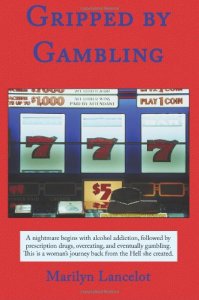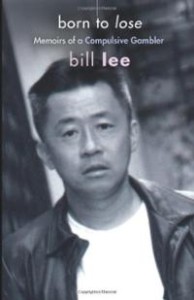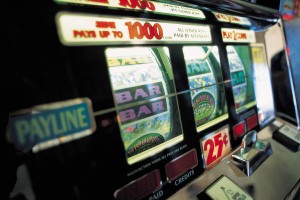I have become concerned about the number of what I perceive are “near misses” reported by clients in recovery from gambling addiction. A near miss, in my opinion, is often a gray area that a client somehow does not see as problematic. A near miss may be the gateway to other compromises or a direct path to relapse. The subtle little things may ultimately prove to be problematic, and it’s not always the big issues that can be a deal breaker for your sustained recovery.
What follows are some things to consider so that you can avoid skating too close to gambling addiction’s blurry edges and falling through the ice.
Raffles: Good Cause or a Bad Idea?
An example of a gray area might be the “innocent” raffle ticket that you consider purchasing or selling for a good cause. Some of you are double or even triple winners. In recovery terms, a “winner” is an individual who belongs to a 12 step group. You might be approached by someone in your other 12 Step programs who ask you to buy or sell a 50-50 raffle ticket. In a 50-50 raffle half of the proceeds go to purchase literature for newcomers’ packets and the winner gets the other half. Saying no to a fellow recovery friend may be difficult, but remember, there are other ways to support the group such as making coffee, acting as a room greeter, setting up and clearing up after the meeting.
A local healthcare organization holds a fundraising raffle with opportunities to win many choice prizes. There are many fine organizations doing amazing work in our communities, and fundraising is an integral part of those groups. However, for those whose primary focus is playing to win rather than supporting the cause, this type of a fundraiser can be problematic and rekindle old fires.
Gambling Temptation via the Mailman
Sometimes the mail brings temptation in the form of offers from an entity such as the Publishers Clearinghouse Sweepstakes guaranteeing that you have one of the winning numbers. You quickly forget that at least half your neighbors have received the same special envelopes and have also been assured that they are the holders of the lucky numbers. According to the official rules, the estimated odds of winning the $1 million a year forever are one in 1.3 billion. How lucky can you get?
Gaming via Smart Phones and Computers
One of the biggest potential time bombs are casino-like games on personal computers and cell phones, especially those that offer “free play.” Free play may initially seem innocent enough. After all, there’s nothing out of pocket. It is possible to play for a while for free, but then the old bait-and-switch occurs, and the next thing you know, you must pay for the “extras” that are part of the game. Sometimes you’re hooked into playing these free games through invitations by friends on social media, or when pop-up advertising of these games seem like no big deal at first. These “innocent” and “free” games may put you on thin ice so that eventually you go for the real thing.
To Bet or Not to Bet
Avid sports fans in recovery may struggle with not participating in office pools such as Fantasy Football or Sweet 16, whether or not money is involved. By the way, offering advice to those who are playing is a vicarious thrill you can’t afford. During Kentucky Derby parties, the focus is on the buffet and elaborate hats, but the bottom line is that the betting is for real. Placing a bet during a simple game of golf, no matter how small the amount, is another gray area that should be recognized. The focus may be diverted to the win and not to the enjoyment of the game itself. Concentrate instead of improving that swing.
The Popularity of Casino Nights
Another potential near miss is when your work holds a holiday party that has a casino night theme, and you are expected to attend. Even though money won’t be exchanged at the event, you are entered into a drawing for prizes. What do you do? Hopefully you shared your recovery with your spouse or significant other, and there is a level of accountability and protection. Stating empathetically that you don’t gamble and are waiting for the dancing is always a good strategy, and when the music starts get out there and show that you mean business.
Another difficult choice can arise when your social service organization sponsors a casino night. Not only are you expected to attend but you might also be easily swayed by the good cause that the event is supporting. If the cause means that much to you, in lieu of attending, I’m sure the organization would appreciate a donation in any amount.
Those Enticing Scratchers
The gaming industry makes the most of their advertising dollars through digital and print media. It is not uncommon to find scratcher ads stuck on the front page of the Sunday newspaper. These scratchers can only be validated at the gaming venue. For those who indulged in scratchers prior to recovery, this type of advertising can be a potent trigger.
Skating Through Recovery, Free from Gambling Addiction
Ultimately, don’t let the gray areas ruin your recovery and skate you back into the black days of addiction. What’s the solution? Avoid gray areas by remaining vigilant. When in doubt, check it out with your therapist or with your recovery group, your sponsor, and peers who have a solid recovery.



